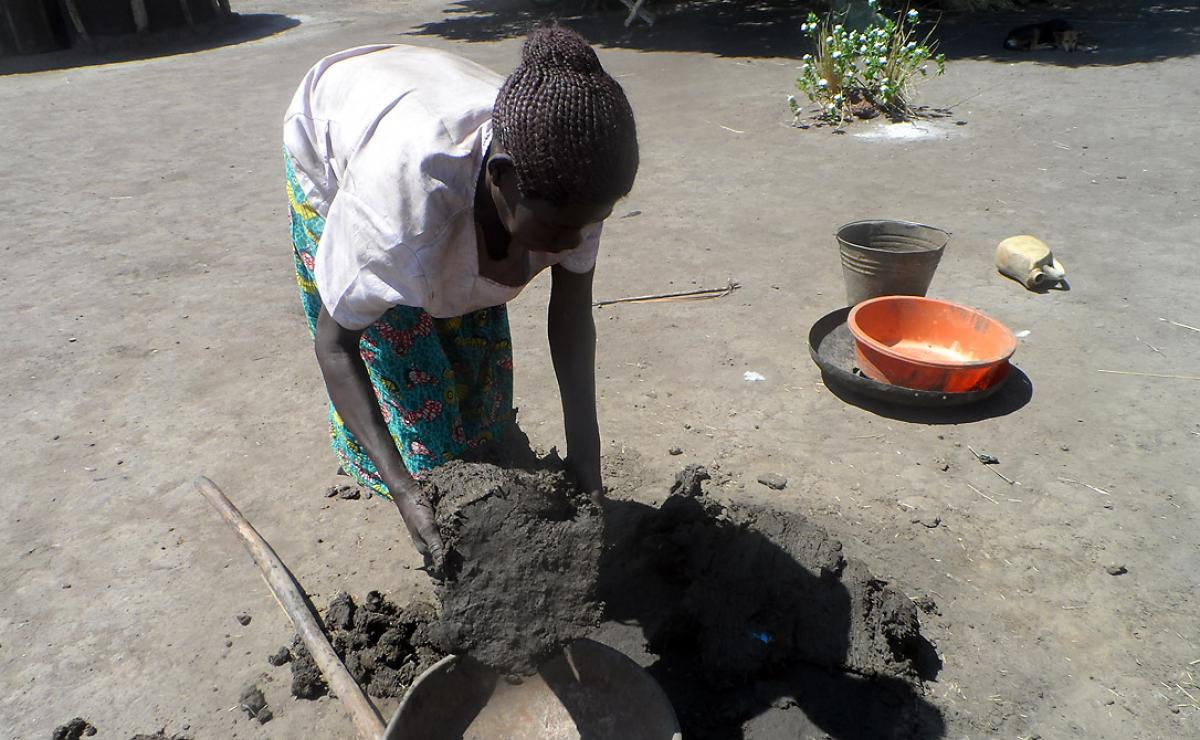A business made of clay

LWF Teko Wa project in Uganda promotes sustainable energy that generates income
(LWI) - Margret Akot, 41, a mother of seven lives in in Baroput village, in Uganda’s northern district of Agago.
Until two years ago, she lived off small-scale agriculture and income from selling charcoal. In a bad season with poor crop yields, she struggled to make ends meet.
“I used to find it very difficult to send my children to school because of seasonal yield fluctuations,” she said.
A new kind of stove
The Lutheran World Federation (LWF) came across many women like Akot when it started working in Baroput village. Many people here rely heavily on fuel wood for cooking, which results in widespread de-forestation to meet the growing need for energy for cooking and lighting. At household level, smoke emissions from firewood create an unhealthy environment.
The LWF “Teko Wa” project aims to increase modern, affordable and sustainable energy solutions to the rural poor population. Locals are trained to create and use sustainable and more environmental friendly energy sources, like energy-saving stoves and affordable solar systems.
In Baroput, LWF started by telling community members about the benefits of energy efficient practices. Akot was one of the women selected to be trained as a local artisan for commercial stove production.
On 15 September 2015, 80 members of the community including Akot took part in a five-day training on commercial stove construction organized by the LWF and conducted by German International Cooperation. She gained the skills required to construct and sell clay stoves that are more efficient as they use less fuel wood, emit little or no smoke, and maintain heat for longer periods compared to the traditional cooking stoves.
Upon her return to Baroput, she immediately started making and selling the energy-efficient stoves to households in her village and beyond.
Start of a business
In four months, Akot had produced and sold 137 energy efficient stoves. In one instance, she exchanged 30 stoves for five bags of sorghum and sold the grain for a total of Uganda shillings - UGX 600,000 (EUR 158). “This school term I used UGX 90,000 (EUR 28) to pay school fees for my son in high school,” Akot says.
The money also supported her older son who studies medicine at Mbarara University of Science & Technology, and needs money for transport and accommodation every semester. Akot could even provide him with some extra pocket money.
Akot has taught two other women the construction technique. “I am extremely happy to share this knowledge with two other ladies and I’m grateful to serve households of Otuke District,” she says. “I never thought I would generate such income with that work. This has changed my life.”
Teko Wa project is a four-year (2015-2018) initiative implemented in the northern districts of Kitgum, Lamwo, Agago and Pader. Its aim is to increase the use of modern, affordable and sustainable energy sources among the rural poor by focusing on renewable energy solutions.
It also builds on environmental sustainability, which is addressed through the energy saving stoves, tree planting and supply of quality and affordable solar systems.
The European Union and Church of Sweden fund the Teko Wa project.
A contribution by LWF Uganda, edited by LWF Office for Communication Services.

